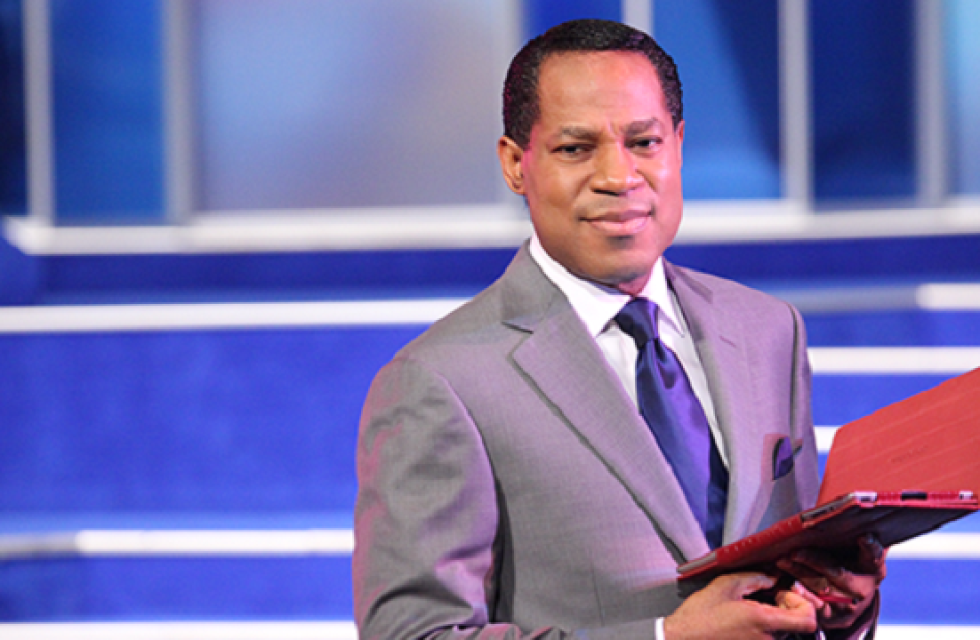
Selfishness is friendly to individualist, but monstrous to communal interest. Life was created by God to be collective and interactive. No man was created to dwell alone or to dwell conveniently aloof. The essence of community is for overall development and integrated continuity. This can be deduced from the creation account of man by God Almighty as against scientific ideology of evolution. Man as a product of God’s creative intelligence was created a relational being. He, as created out of the dust of the earth was to depict humility.
James 4:10: “Humble yourselves in the sight of the Lord, and He will lift you up.”
The key to true walk with God is dead to self. During Jesus’ triumphant entry into Jerusalem amidst the honourable celebration and the desire of some Jewish elites of Jesus’ day to see him, He without distraction from the heavenly agenda diverted the attention of the disciples to something very striking: ‘verily, verily I say to you, except a corn of wheat fall into the ground and die, it abides alone; but if it die, it brings forth much fruit,’ (John 12:24); this he said concerning His death and resurrection, and theologically laying foundation for the disciples; that until a man dies through the spiritual process of divine encounter with the Holy Ghost such a person will only abide alone — which depicts a life without the indwelling presence of the Holy Spirit; but if a man surrenders and wills his will and his all to Christ and is crucified with Christ; Christ dwells in him through the power and presence of the Holy Spirit, which will enable him to bear fruit.
Bearing Of Fruits Are In Two Ways:
1. Having the fruit of the Holy Spirit (Gal 5:22) and
2. Being Fruitful in every area of life (Gen 1:26)
To gain deeper insight to the discussion there is need to consider the words: ‘Commitment’ and ‘Service.’
What Is Commitment?
This is defined as the state or quality of being dedicated to a cause, activity etc. It also means an engagement or obligation that restricts freedom of action. (Online Dictionary from Oxford)
The King James Version of the Bible does not have the word commitment in it, but the scriptures contains vast portions that talks about commitment and dedication to God and His purpose. Rather, you will get words like: commit, committed, committest and committing. In moving forward to grasp the illumination of the word, commitment must be seen in the context of dedication and totally sold out to God.
What Is Service?
It is defined as “the action of helping or doing work for someone.” The word ‘service’ appears about 132 times in the KJV of the Holy Bible in about 116 verses. Other words that can help enrich our minds include: duty, serve, assistance and help.
It could also relate to business, involvement, etc. However, the words servant, service and serve in its various forms occur well over 1,100 times in the new international version.
God does not play with service and heaven rewards it. The Hebrew word for servant in the Old Testament is ‘ebed’ and it has two key ingredients: action and obedient. God referred to our patriarchs as servants; Gen 26:24 (Abraham), Gen32:4 (Jacob, Joshua) 24:29 (Joshua and others).
Our coming to God must be total, absolute and with a deep sense of resolve. Looking at the topic and the above meaning you will agree with me on the need for everyone coming to God to see himself as a bond servant; it is in the light of this that I consider myself His Bond Servant, and God’s errand boy.
Who Is A Servant?
This means a person male or female that attends to another for the purpose of performing menial offices for him, or who is employed by another for such offices or for other labour and is subject to his command. The word is correlative to ‘master’.
Servant may differ from slave, as the servant’s subjection to a master is voluntary, but the slave is not. One can say that every slave is a servant, but not every servant is a slave. (Eph. 6:5). When we come to Christ through the new birth experience we are no longer our own, but His (1Corinth 6:19); we are bought with a price (1Corinth 6:20). This sounds more like a servant who is owned by a master — maybe a slave. One can boldly say that every true child of God is God’s servant as well as His slave. This sounds hard, but it is the truth. This slave is a slave with great liberty who is a co-share of the master’s inheritance and estate. (Romans 8:17, Gal 3:29)
A slave when bought by the master is dead to freedom and his previous identity. He takes up a new identity as owned by his master. Whatever he does from then must be for the interest, command and satisfaction of the owner.
When we come to Christ we become new creatures: (2Corinth. 5:17). As new creatures in Christ we are supposed to die to sin and self (Eph. 2:1, Rom 6:711) “And alive through Christ and in Christ” (Rom 6:11-13). This can be done through yielding ourselves to God (Gal5:16, Eph. 4:22-32, Col 3:8-10). We are raised to live Christ’s life Col 3:1, when we have given ourselves wholly to God it will be no big deal to work for God and walk in obedient to His will.
God call us to a life of separation. A life fully sold out to God and unreservedly dedicated to his purpose. The problem of today’s church is that many profess to belong to Christ, yet they are not dead. Some who profess to have dead only entered into ‘spiritual coma.’ Are you still alive to sin and self, or have you crucified the old man and the evil desires thereof?
Jesus once told the people in Luke 18:25: “For it is easier for a camel to go through a needle’s eye, than for a rich man to enter into the kingdom of God,” (King James Version). The ultimate question is: “Will the rich man enter the kingdom of heaven?”
The Question Therefore:
• Does not suggest impossibility.
• Actually suggest how difficult it maybe for a ‘rich man’ to enter heaven.
• Leaves the individual with a choice and will of the position he is to make or take.
• Means it will require giving up something for the ‘rich man’ to enter heaven.
Background Of The Text
The saying was a response to a young rich man who had asked Jesus what he needed to do to inherit eternal life. Jesus replied that he should keep the commandments, which the man replied that he had done. Jesus responded: “If you want to be perfect, go, sell your possessions and give to the poor, and you will have treasure in heaven. Then come, follow me.” The young man became sad and was unwilling to do that. Jesus then gave the response: “For it is easier for a camel to go through a needle’s eye, than for a rich man to enter into the kingdom of God.” Leaving his disciples astonished.
The pointer to the statement is:
• Self-denial
• Priority — what is more important?
• Sacrifice — what can you not give up?
The Close Scriptures To This Include:
Mark 12:30: “And thou shalt love the Lord thy God with all thy heart, and with all thy soul, and with all thy mind, and with all thy strength: this is the first commandment.”
Matthew 22:37: “Jesus said unto him, Thou shalt love the Lord thy God with all thy heart, and with all thy soul, and with all thy mind.”
Luke 10:27: “And he answering said, Thou shalt love the Lord thy God with all thy heart, and with all thy soul, and with all thy strength, and with all thy mind; and thy neighbour as thyself.”
Deuteronomy 6:5: “And thou shalt love the Lord thy God with all thine heart, and with all thy soul, and with all thy might.”
Deuteronomy 13:3: “Thou shalt not hearken unto the words of that prophet, or that dreamer of dreams: for the Lord your God proveth you, to know whether ye love the Lord your God with all your heart and with all your soul.”
Deuteronomy 10:12: “And now, Israel, what doth the Lord thy God require of thee, but to fear the Lord thy God, to walk in all his ways, and to love him, and to serve the Lord thy God with all thy heart and with all thy soul.”
1Samuel 7:2-3: “And it came to pass, while the ark abode in Kirjathjearim, that the time was long; for it was twenty years: and all the house of Israel lamented after the Lord. 3: And Samuel spake unto all the house of Israel, saying, if ye do return unto the LORD with all your hearts, then put away the strange gods and Ashtaroth from among you, and prepare your hearts unto the LORD, and serve him only: and he will deliver you out of the hand of the Philistines.”












